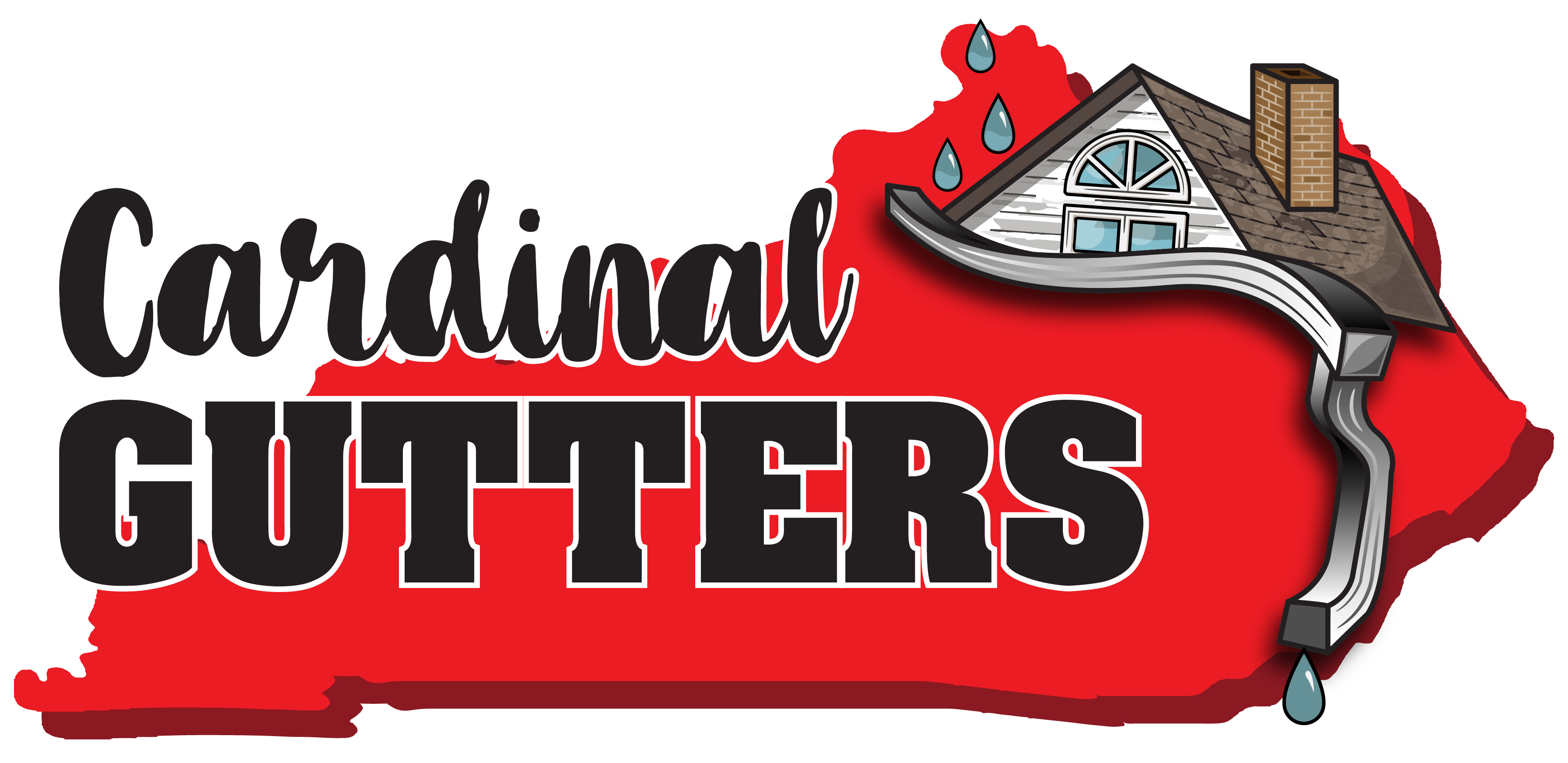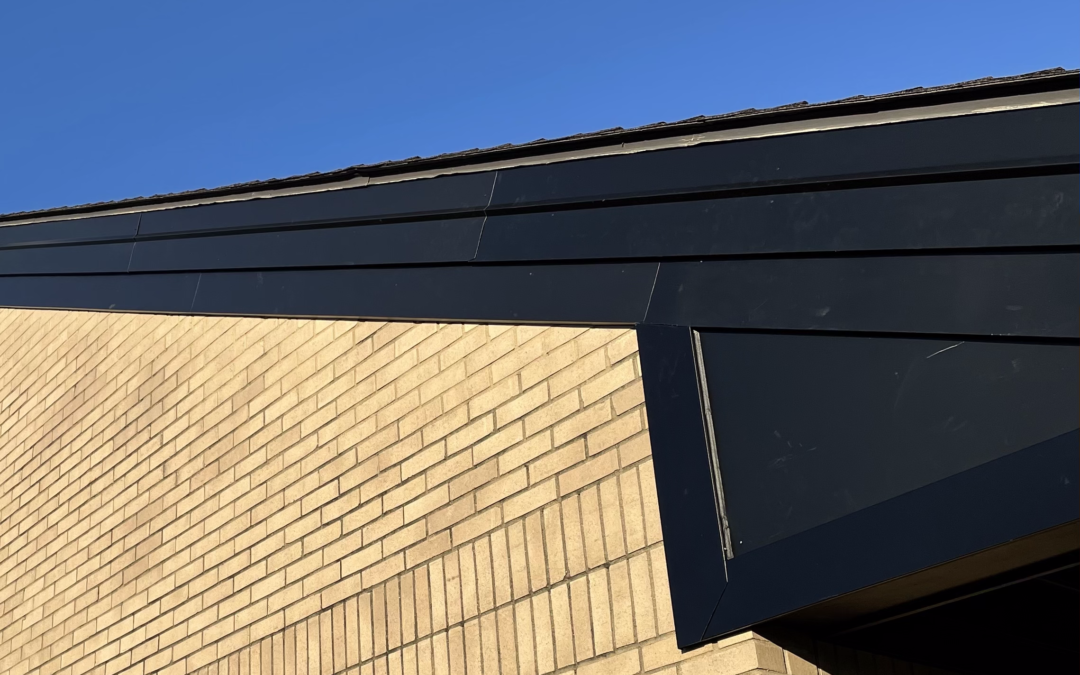Fascia wrap and trim metal are integral elements in protecting and beautifying your home’s exterior. As homeowners in Louisville, KY, it’s important to understand the roles these materials play in maintaining your property. At Cardinal Gutters, we believe in providing valuable information to help you make informed decisions about your home maintenance needs. In this comprehensive guide, we’ll explore the intricacies of fascia wrap and trim metal, discussing their functions, benefits, and installation processes.
What is Fascia Wrap?
Definition and Purpose
Fascia wrap, also known as fascia cladding, involves covering the existing wooden fascia boards on a house with a protective layer. This wrap is typically made from durable materials like aluminum or vinyl. The primary purpose of fascia wrap is to shield the wood from harsh weather conditions such as rain, snow, and sun exposure, which can lead to rot, warping, and other forms of deterioration.
Benefits of Fascia Wrap
- Weather Protection: Fascia wrap serves as a barrier against moisture, preventing water damage and wood rot.
- Low Maintenance: Once installed, fascia wrap reduces the need for frequent repairs and repainting, saving you time and money.
- Enhanced Appearance: Available in a variety of colors and finishes, fascia wrap can improve the overall look of your home by providing a clean, polished finish.
- Durability: Materials like aluminum are resistant to rust and corrosion, ensuring long-lasting protection for your fascia boards.
What is Trim Metal?
Definition and Purpose
Trim metal, also known as metal flashing or trim coil, is a versatile material used in various exterior applications, including covering fascia boards, soffits, and window and door trims. It serves both functional and aesthetic purposes, protecting the underlying structure from weather damage while providing a finished look to the home’s exterior.
Benefits of Trim Metal
- Weather Resistance: Trim metal effectively seals edges and joints, preventing water infiltration and subsequent damage.
- Versatility: Suitable for multiple applications, trim metal can be used to cover fascia, soffits, and other exterior elements, ensuring a uniform and cohesive appearance.
- Customization: Available in different colors and finishes, trim metal can be tailored to match the style of any home, enhancing its curb appeal.
- Durability: Made from materials like aluminum or steel, trim metal is highly durable and can withstand harsh weather conditions without deteriorating.
The Importance of Proper Installation
Ensuring Effective Protection
Proper installation of fascia wrap and trim metal is crucial to ensure they function as intended. Incorrect installation can lead to gaps and leaks, undermining the protective benefits and potentially causing more harm than good. It is recommended to seek professional assistance to guarantee a seamless and effective installation.
Steps in Installation
- Preparation: The existing fascia boards are cleaned and any damaged sections are repaired or replaced.
- Measuring and Cutting: The fascia wrap or trim metal is measured and cut to fit the dimensions of the fascia boards accurately.
- Securing: The material is then securely fastened to the fascia boards using nails or screws, ensuring there are no gaps or overlaps.
- Finishing Touches: Edges and joints are sealed with caulk or other sealants to prevent water infiltration.
Choosing the Right Materials
Aluminum vs. Vinyl
When selecting materials for fascia wrap and trim metal, homeowners typically choose between aluminum and vinyl. Each has its own set of advantages:
- Aluminum: Known for its durability and resistance to rust and corrosion, aluminum is a popular choice for fascia wrap and trim metal. It can withstand extreme weather conditions and provides a sleek, modern look.
- Vinyl: Vinyl is another durable option that is resistant to moisture and rot. It is often more affordable than aluminum and is available in a wide range of colors and finishes.
Factors to Consider
- Climate: Consider the local weather conditions in Louisville, KY, when choosing materials. Aluminum may be more suitable for areas with high humidity and frequent rainfall.
- Budget: Vinyl may be a more cost-effective option for homeowners on a budget, while aluminum offers superior durability and longevity.
- Aesthetics: Choose a material and finish that complements the style and color scheme of your home.
Maintenance Tips
Keeping Fascia Wrap and Trim Metal in Top Condition
Although fascia wrap and trim metal are low-maintenance, regular inspections and cleaning can help ensure they remain in excellent condition. Here are some maintenance tips:
- Regular Inspections: Check for any signs of damage, such as dents, cracks, or loose sections, especially after severe weather events.
- Cleaning: Clean the fascia wrap and trim metal periodically with a mild detergent and water to remove dirt and debris.
- Re-sealing Joints: Over time, the sealant around edges and joints may deteriorate. Reapply sealant as needed to maintain a watertight barrier.
Conclusion
Understanding the roles and benefits of fascia wrap and trim metal is essential for maintaining the integrity and appearance of your home’s exterior. These materials offer significant protection against weather damage, reduce maintenance efforts, and enhance curb appeal. By choosing the right materials and ensuring proper installation, you can enjoy long-lasting benefits for your home. At Cardinal Gutters in Louisville, KY, we are dedicated to providing valuable information to help you make the best decisions for your property. For more information on maintaining your home’s exterior, feel free to reach out to us.

